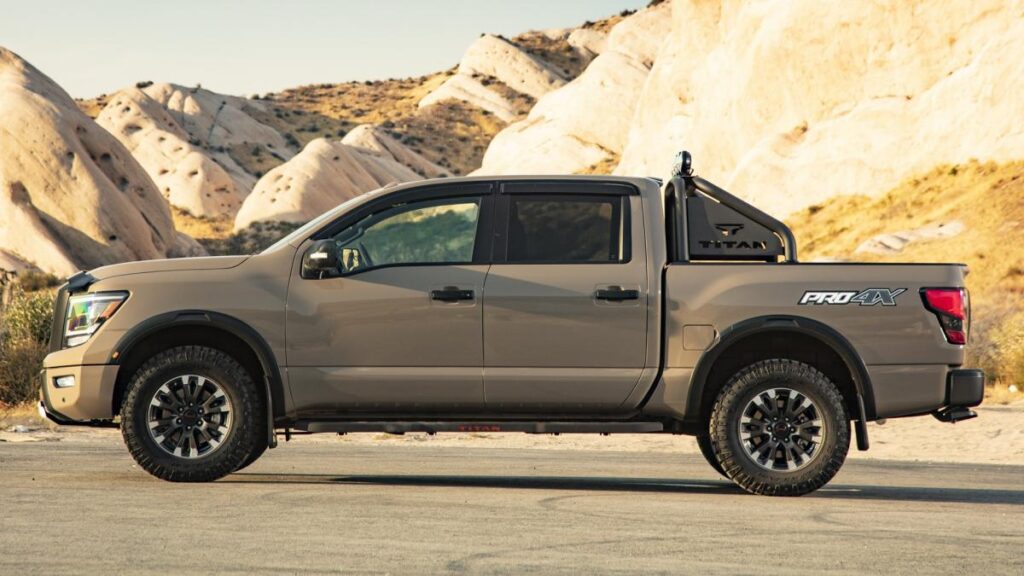When making major purchases, it is essential to seek advice from trusted professionals, much like how individuals consult financial planners for investment guidance or doctors for health matters. This principle is particularly relevant when considering the purchase of a vehicle, such as a pickup truck. Mechanics, given their expertise in automotive performance, can provide invaluable insights into which models may be worth your investment and which may present potential pitfalls. In light of this, GOBankingRates recently consulted a mechanic and truck expert who outlined three specific pickup truck models to avoid due to various deficiencies in performance, reliability, and overall value.
The 2018 Ford F-150 stands out as one of the least recommended trucks by Tomasz Mazurkiewicz, CEO of Truck1. While it boasts an aesthetically appealing design, the model suffers from significant mechanical issues, particularly with its transmission. Reports indicate that the truck is prone to early stall-outs and engine malfunctions, particularly in EcoBoost variants. These transmission failures not only compromise driver safety but can lead to costly repairs if not addressed promptly. The vehicle’s aesthetic appeal cannot overshadow the critical mechanical challenges it presents, leading to a strong recommendation against its purchase for prospective buyers.
Similarly, the 2019 Chevy Silverado, despite its attractive appearance, falls short due to inherent problems related to its dynamic fuel management system. This system, which is intended to enhance fuel efficiency, has been linked to numerous complaints from owners reporting misfires and lifter failures—issues that are notoriously expensive to repair. Replacement and repair of lifters can run into thousands of dollars, transforming the overall ownership experience into a daunting gamble. Furthermore, the Chevy Silverado has drawn criticism for its interior quality and technological glitches, making it a challenging sell for buyers who prioritize value in their vehicle investments.
The analysis extends to the 2020 Nissan Titan, which has also received unfavorable assessments in terms of reliability. Although it enters the market at a competitive price point, it has garnered lower dependability scores compared to its rivals. Notably, the Titan’s nine-speed automatic transmission has been criticized for its inconsistency, leading to a subpar driving experience. Additionally, when compared to others in its class, the Titan appears to lack adequate towing and payload capabilities, rendering it less suitable for buyers in need of a heavy-duty work vehicle. This combination of poor performance metrics and limited functionality positions the Titan as an unfavorable option among pickup trucks.
Taking these perspectives into account is crucial for consumers who are considering investing in a pickup truck. Mechanics have hands-on experience with a multitude of vehicles and can provide real-world insights into their performance and reliability. The specific issues identified by experts raise significant red flags about the 2018 Ford F-150, 2019 Chevy Silverado, and 2020 Nissan Titan, all of which are characterized by potentially serious technical problems that could lead to financial burdens down the line. Understanding these drawbacks can aid buyers in making more informed decisions that align with their needs and expectancies.
In conclusion, when contemplating the purchase of a pickup truck, it is wise to consult with professionals like mechanics, who can shine a light on which models might lead to more trouble than they are worth. The insights from experts such as Tomasz Mazurkiewicz offer a clear view into the risks associated with certain models. By avoiding the pitfalls associated with the 2018 F-150, 2019 Silverado, and 2020 Titan, buyers can not only save on potential repair costs but also enhance their overall driving experience with a more dependable vehicle. Ultimately, being well-informed before making such significant purchases can lead to greater satisfaction and reduced financial strain in the long run.

